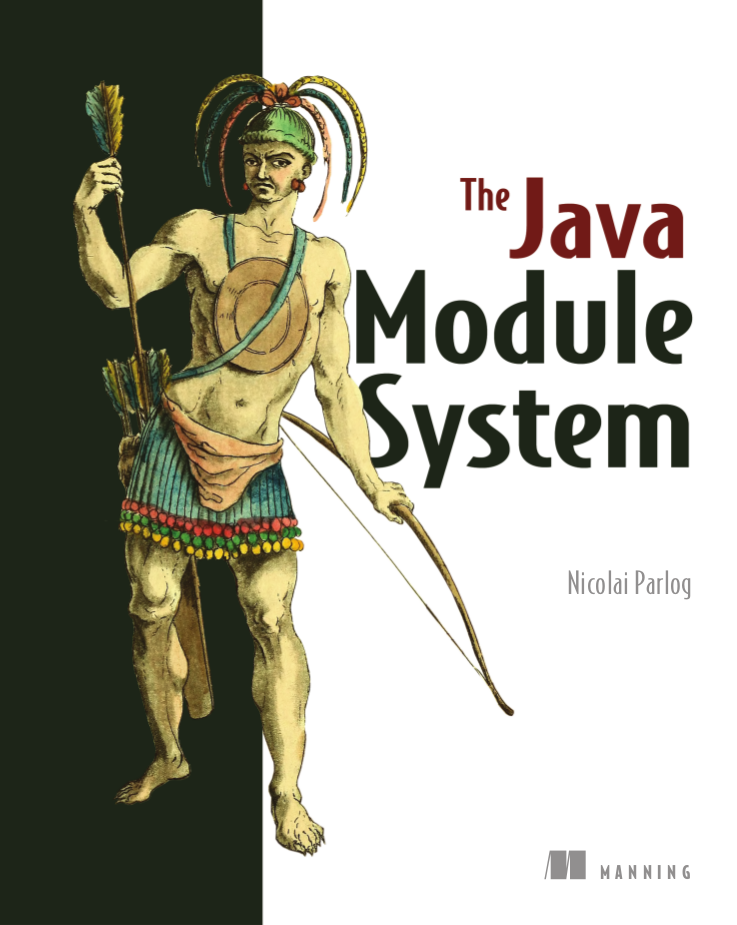#(int x, int y)(x * y)Java Next!
New Releases, Amber, Valhalla, and More Goodies
Lots to talk about!
| Versions and Features |
| The New World |
| Projects To Look Out For |
(Slides at slides.codefx.org.)
Versions and features
| Versions and Features |
| The New World |
| Projects To Look Out For |
From Java 8 to Java 11.
Java 8
released 03/2014
free support ends 01/2019
What’s the core of 8?
n -> lambdas()
andMethod::referencesfeatures.stream()default method() { … }
Project Lambda
launched with a straw-man (12/2009):
1st early draft review (11/2011):
Callable<String> c = () -> "done";2nd review (06/2012) and 3rd review (01/2013)
public review (12/2013) and final ballot (02/2014)
Project Lambda
lead by Brian Goetz
ran from 12/2009 to 02/2014
mailing list (thousands of messages)
Projects…
start with an idea
that is then evolvedcan take a long time
are fairly open
Java 9
released 09/2017
free support ended 01/2018
What’s the core of 9?
module jpms { requires more.work; exports migration.challenges; }
More on the JPMS
Project Jigsaw
launched 12/2008
Sun’s primary goal in the upcoming JDK 7 release will be to modularize the JDK […], which we hope to deliver early in 2010.
😊
Jigsaw history
Oracle acquires Sun, Jigsaw is halted (2010)
Jigsaw starts exploratory phase (2011)
releases of Java 7 (2011) and Java 8 (2014)
exploratory phase ends with JSR 376 (2014)
a prototype is released (09/2015)
Community unrest
about lacking module isolation
about forbidden cyclic dependencies
about the concept of automatic modules
about migration challenges
Community unrest
about
Unsafeet. al.
⇝ jdk.unsupported exports themabout strong encapsulation
⇝ deactivated on JDK 9/10/11about hostility to reflection
⇝opensdirectiveand a few more
Jigsaw history
Java 9 release was planned for 09/2016
Jigsaw delays it to 03/2017,
then 07/2017, then 09/2017public review ballot (05/2017)
Jigsaw history
public review ballot fails (05/2017)
only change: encapsulation turned off
reconsideration ballot passes (06/2017)
¯\_(ツ)_/¯
Projects…
can lead to very heated discussions
are subject to politics
take feedback into account and
adapt to new requirementsare not as open as they could be
can take a very long time and
delay Java releases
Java 10
released 03/2018
free support ends 07/2018
What’s the core of 10?
local-variable type inference:
var users = new ArrayList<User>();application class-data sharing (hardly)
Project Amber
More on that later!
Java 11
release 09/2018
free support ends 01/2019
(yes, no free LTS—more on that later)
What’s the core of 11?
Err…
single-file source-code programs:
java HelloWorld.javareactive HTTP/2 client
Epsilon GC
Java 11
no language changes
no monumental dev-facing features
this will become common
that’s not a bad thing!
The new world
| Versions and Features |
| The New World |
| Projects To Look Out For |
Old release cycle
The plan
releases are driven by flagship features
new major release roughly every 2 years
Old release cycle
The reality
Java 7 took 5 years
Java 8 took 3 years
Java 9 took 3.5 years
"Bump an 'almost ready' feature
2+ years into the future?"
⇝ "Better to delay the release."
Downsides
implemented features provide no value
increases reaction time
puts (political) pressure on projects
makes everybody grumpy
The new world
If it hurts, do it more often.
fixed six-month release cadence
(March and September)ship everything that is ready
All are major releases
with known quality guarantees.
⇝ No "beta versions"!
Implementation
features are developed in branches
merged into master when (nearly) finished
release branch created 3 months prior
only bug fixes merged to release branch
Upsides
completed features get out earlier
no pressure to complete features "on time"
easier to incubate features
easier to react to changes in the ecosystem
Release fatigue?
"Java will change too fast."
"Constant migrations will be expensive."
"Test matrix will explode."
"Ecosystem will fragment."
Fast Change
The rate of innovation doesn’t change. The rate of innovation delivery increases.
Maybe speed will pick up a little:
recent activities target low-hanging fruits
Oracle is focusing on Java core (my impression!)
Fast Change
By and large:
Evolution will be steadier, not faster.
(see Java 11)
Expensive migrations
Balance shifted between
compatibility vs evolution:
@Deprecated(forRemoval=true)"one major release" is now 6 months, not 36
increasing bytecode level
incubating features (if used incorrectly)
Expensive migrations
But not the norm:
Java 10 is trivial
Java 11 is easy
Oracle is still committed
to backwards compatibility!
Expensive migrations
Remedies:
stick to supported APIs
stick to standardized behavior
stick to well-maintained projects
keep dependencies and tools up to date
JLink can help
Use jlink to create application images:
contain just the platform modules you need
contain your code and your dependencies
launch with
image/bin/your-app
Single deployment unit,
independent of installed JRE.
JLink considerations
Independent of installed JRE:
no compatibility issues
no automatic performance gain
no automatic security updates
Works great if you have
complete control
over the deployment.
Not so much if you deliver software.
Exploding test matrix
As the range of supported versions increases…
builds need to run against all of them
developers needs to switch between them
Many tools already support this.
We need to know how.
Also: Moar automization!
Fragmenting Ecosystem
"This will be like Python 2/3!"
No.
Advice
find a suitable update cadence
test with each feature release
only rely on standardized behavior
heed deprecation warnings
keep dependencies and tools up to date
give
jlinka try
Most importantly:
Be aware of what’s coming!
Be aware
Don’t focus on versions!
Focus on projects and JEPs:
Let’s have a look at what’s coming!
Long-term support
What if you (or your customers)
don’t want to update every six months?
Oracle JDK vs OpenJDK
Oracle JDK used to…
contain more features
be perceived as more stable
be perceived as more performant
As of Java 11, on a technical basis
Oracle JDK and OpenJDK are identical.
Oracle JDK vs OpenJDK
Only difference is license and support model:
Oracle ships OpenJDK at jdk.java.net/$version,
licensed under GPL+CEOracle JDK becomes fully commercial:
from 11 on, no free use in production
⇝ Get used to using on OpenJDK.
Oracle support
What does Oracle support?
free updates for current major OpenJDK version
commercial support for Oracle JDK
for at least 3 years for Java 11, 17, 23, etc.
Oracle support
How does Oracle handle bug/security/etc fixes?
usually developed on master (OpenJDK)
merged to current version’s branch (OpenJDK)
merged to current LTS version (internally)
LTS means merging fixes
into old OpenJDK branches.
Long-term support
Commercial LTS by
Oracle
Azul
RedHat
…
Likely free LTS for OpenJDK
by Adopt OpenJDK!
😁👍🎉🍾🤗
Projects
| Versions and Features |
| The New World |
| Projects To Look Out For |
Many great features on the horizon!
Be aware
Don’t focus on versions!
Focus on projects and JEPs:
Let’s have a look at what’s coming!
(Straw-man syntax ahead!)
Many great projects
- Amber
Smaller, productivity-oriented language features
- Valhalla
Generic specialization and value types
- Loom
Fibers and continuations
- Metropolis
Graal and ahead-of-time compilation
- Sumatra
Java on the GPU and APU
Amber
Explore and incubate smaller, productivity-oriented Java language features.
Profile:
launched March 2017, very active
Already delivered var in Java 10!
Motivation
Compared to modern languages, Java:
can be cumbersome
lacks expressiveness
tends to require boilerplate
Amber wants to improve that situation.
Endeavors
String literals
String html =
`<html>
<body>
<p>"Hello, string literals!"</p>
</body>
</html>`;Yeah:
multiline strings
no escaping of special characters
Switch expressions
int numLetters = switch (day) {
case MONDAY, FRIDAY, SUNDAY -> 6;
case TUESDAY -> 7;
case THURSDAY, SATURDAY -> 8;
case WEDNESDAY -> 9;
};Yeah:
switch"gets a value"no more
break!compiler checks exhaustiveness
Pattern matching
String formatted = switch (obj) {
case Integer i -> String.format("int %d", i);
case Byte b -> String.format("byte %d", b);
case Long l -> String.format("long %d", l);
case Double d -> String.format("double %f", d);
case String s -> String.format("String %s", s);
default -> obj.toString();
}Yeah:
more powerful conditions
no repetition between condition and block
Pattern matching
public int eval(Node n) {
return switch(n) {
case IntNode(int i) -> i;
case NegNode(Node n) -> -eval(n);
case AddNode(Node left, Node right) ->
eval(left) + eval(right);
case MulNode(Node left, Node right) ->
eval(left) * eval(right);
default -> throw new IllegalStateException(n);
};
}Goodbye visitor pattern!
Valhalla
Explore and incubate advanced Java VM and Language feature candidates.
Profile:
launched July 2014, very active
Motivation
In Java, (almost) everything is a class:
mutable by default
memory access indirection
requires extra memory for header
allows locking and other
identity-based operations
Wouldn’t it be nice to create a custom int?
Value types
Codes like a class, works like an
int.
public value Point {
public final int x;
public final int y;
public Point(int x, int y) {
this.x = x;
this.y = y;
}
}Value types
public value Point {
public final int x;
public final int y;
// [...]
}Yeah:
enforced immutability
no
Objectheaderidentity doesn’t matter
makes Java more expressive (think DDD)
Generic specialization
When everybody creates their own primitives
boxing becomes omni-present and very painful!
List<int> ids = new ArrayList<>();Yeah:
backed by an actual
int[]great performance
Generic specialization
Has immense effect inside the JDK!
No more manual specializations:
functional interfaces
stream API
OptionalAPIetc.
Sumatra
Enable Java applications to take advantage of GPUs and APUs […] to improve performance
Profile:
launched June 2014, not much recent activity
Java on the GPU: Where are we now?
by Dmitry Aleksandrov
Motivation
Why use the GPU?
can be more peformant
can be more energy-efficient
Can’t we do that already?
(Aparapi, JOCL)
not integrated into the JDK
require their own programming model
Goals
Basics:
create low-level API to uniformly access GPUs
use stream API as high-level API
Ideally:
auto-detection of hardware and software stack
heuristic to decide when offloading makes sense
offload embarrassingly parallel stream pipelines
on error, graceful fall-back to normal CPU execution
Implementation
For stream operations to offload:
extract lambda function
use Graal to compile to HSA kernel (runs on GPU)
extract lambda arguments and pass to HSA
GPU operates on main memory
and has access to Java heap!
Example
public static void main(String[] args) {
final int length = 8;
int[] ina = new int[length];
int[] inb = new int[length];
int[] out = new int[length];
// ...
}Example
// offloadable
IntStream.range(0, length).parallel().forEach(p -> {
ina[p] = 1;
inb[p] = 2;
});
// offloadable
IntStream.range(0, length).parallel().forEach(p -> {
out[p] = ina[p] + inb[p];
});
// not offloadable (native code)
IntStream.range(0, length).forEach(p -> {
System.out.println(
out[p] + ", " + ina[p] + ", " + inb[p]);
});Projects
To know what’s coming:
pick a project that interests you
look out for mentions
subscribe to the mailing list
find early access builds and try them
give feedback
Tell your colleagues about it!
About Nicolai Parlog
Follow
Want More?
⇜ Get my book!
You can hire me:
training (Java 8-11, JUnit 5)
consulting (Java 8-11)


